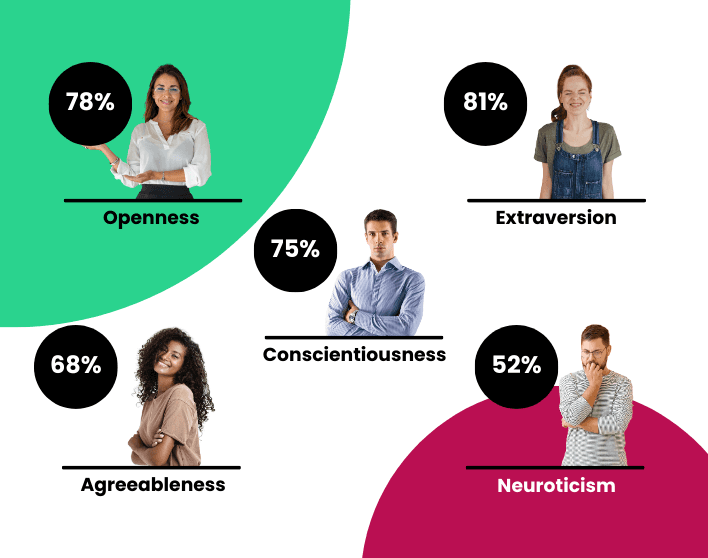Markellos Diorinos
CEO, Bryq
Soft skills, the personal attributes that allow us to interact harmoniously and effectively with others, have rapidly gained prominence in the corporate landscape. In an increasingly automated and digitalized world, these irreplaceable human qualities serve as a benchmark for distinguishing top talent. Though hard skills are quantifiable and easier to measure, it's the soft skills that often determine a professional's capability to adapt, lead, and excel in a collaborative work environment.
The importance of soft skills in the workplace is undeniable. Their role in fostering a productive, harmonious, and more inclusive workspace, cannot be overstated. From leadership to emotional intelligence, and from critical thinking to communication skills, these attributes bind teams together, enhance employee engagement, and stimulate innovative thinking. They are the driving forces that enable professionals to navigate through complex circumstances, make pivotal decisions, and more importantly, influence others effectively.
Despite their clear significance, assessing soft skills poses unique challenges. Traditional recruitment paradigms, which often accentuate hard skills, educational qualifications, and professional experience, may overlook these vital soft skills. There is an evident need for an intricate and nuanced framework that can appraise these skills seamlessly and efficiently.
One such challenge lies in the subjective nature of soft skills. They are not typically measured in numbers or facts, making them inherently challenging to assess without bias. Circumventing this calls for an innovative, objective, and reliable means to measure these attributes that can significantly contribute to a professional's long-term success.
In light of the importance of soft skills and the challenges associated with assessing them, HR professionals must forge advanced strategies and tailored solutions for accurate soft skills assessment. This guide aims to dive deep into the complexities of assessing soft skills, providing multi-faceted insights, comprehensive strategies, and practical tools. It will also shed light on the methods for generating objective, impactful, and insightful results; empowering HR professionals to identify, select, and nurture the talent of tomorrow, today.

Understanding Soft Skills: Definition and Examples
Defining Soft Skills
Soft skills, at their core, are the bedrock of a person’s ability to communicate, resolve issues, and carry out tasks within a team constructively and efficiently. They are abilities not necessarily tied down to specific professions and, as opposed to hard skills, they aren't taught and learned through formal education or professional qualifications. They are intangible assets that revolve around an individual's personality, attitude, and behavior.
Contrast with Hard Skills
While hard skills, such as proficiency in a foreign language, ability to code, or the technical know-how of operating machinery, are essential job-related proficiencies, soft skills are often the gears that enable these hard skills to function within a social workspace. Without an efficient communication skills appraisal or a robust emotional intelligence evaluation, the practical application of hard skills could fall short of potential.
Importance in the 21st Century Workplace
The importance of soft skills, particularly in a 21st-century workplace, cannot be overstated. As businesses and organizations continue to evolve amidst changing technological landscapes, the cry for a more comprehensive critical thinking assessment and adaptable problem-solving evaluation echoes louder. Companies are increasingly cognizant about the significance of personal attributes review and its role in nurturing a flexible and creative work environment.
Common Examples in Various Industries
Across all sectors, some of the most valued soft skills include teamwork abilities measurement, leadership skills testing, and conflict resolution analysis. Additionally, in the realm of customer service, social skills evaluation, and listening skills measurement play pivotal roles in enhancing customer satisfaction and driving business growth.
The Role of Soft Skills in Employee Performance
Likewise, it’s important to note that employee performance is not simply a direct result of hard skills and technical expertise. More often than not, it's the application of soft skills that reflects professionalism, diligence, and suitability within a particular work setting.
Impact on Teamwork and Collaboration
Consider any task necessitating teamwork. Instead of individual talent, it's the collective problem-solving capabilities, the communication skills, and the management dynamics that contribute towards its successful completion. A team with a robust teamwork abilities measurement and a positive leadership skills testing is likely to outperform a group with underdeveloped soft skills, irrespective of technical prowess.
Influence on Leadership and Decision-making
Similarly, the sphere of leadership is riddled with remarks on decision making assessment, emotional intelligence evaluation, and interpersonal skills measurement. The ability to motivate, inspire, and harmonize a team while making decisions that prioritize collective success is largely tied down to these soft skills.
Connection with Client and Customer Satisfaction
The interpersonal dynamics in customer interactions heavily weigh upon the scale of social skills evaluation and listening skills measurement. A team with an extensive understanding of these abilities is likely to drive higher customer satisfaction, build strong client relationships, and ultimately, enhance business prosperity.
Soft Skills and the Future of Work
Looking ahead, the future of work will demand a different landscape of abilities. As technology integrates into virtually every facet of business, having just hard skills won't suffice.
Role in Adapting to Technological Advancements
It is crucial to maintain an adaptive mindset and willingness to learn amidst rapidly evolving technological advancements. Businesses embarking on the digital transformation journey will necessitate an adaptability skills appraisal of their workforce ensuring seamless technological adaptations.
Importance in Remote and Flexible Work Arrangements
Additionally, the rise of remote and flexible work arrangements demand employees to possess a high degree of self-motivation, time management skills, and virtual communicative proficiency. A robust time management review is essential to deliver results in an asynchronous work setting. Similarly, the evolution of the workspace destabilizes traditional hierarchy structures, necessitating a deeper emphasis on leadership skills testing and vibrant, collaborative team dynamics.
In conclusion, hard skills may get your foot in the door, but to leave a lasting footprint, a solid foundation of soft skills is indispensable. Businesses need to recognize and prioritize these soft skills, redefining their talent acquisition and talent management strategies for the age ahead.
Comprehensive Assessment of Soft Skills
Traditional Methods of Soft Skills Assessment
The use of traditional methods for assessing soft skills remains prevalent in many organizations. These methods typically involve one-on-one approaches to gauge the employee's strength in key competency and value areas.
Interviews and Reference Checks
Among the most common assessment methods are interviews and reference checks. A well-structured interview can perform a wide-ranging communication skills appraisal or a basic leadership skills testing. In theory, practiced interviewers employ strategic questioning to unearth evidence of soft skills, observing candidate responses for indicators of their ability to collaborate with teams, handle conflicts, and display emotional intelligence. In practice, personal bias and lack of time lead to very poor accuracy. Reference checks further verify these assessments, providing insights into the candidate's history with teamwork, problem-solving, and critical thinking in a professional context.
Personality Tests and Self-reporting Instruments
Used appropriately, personality tests and self-reporting instruments can play a crucial role in the personal attributes review process. They may reflect an individual’s inclinations towards leadership, creativity, adaptability, etc., and can provide an objective, unbiased tool for measuring these traits. Specific, well-validated personality tests can give an indication of an individual's interpersonal skills measurement, but it's important to note these assessments are based on self-perceptions rather than verifiable behaviors or actions.
Evaluation of Past Performance and Experiences
Another traditional method involves evaluating an individual's past performance and experiences. This form of assessment often uncovers patterns of behavior indicating proficiency in decision-making, problem-solving, and adaptability. Evidence-based experiences and proven track records can be helpful indicators during the personal attributes review process, though they must be interpreted in context and do not always guarantee future performance.
Modern Approaches to Soft Skills Assessment
In recent years, numerous alternative and modern approaches have emerged in the arena of soft skills assessment. Many of these methods incorporate real-time observations, peer-reviewed inputs, or data-driven assessments to promote objectivity and precision.
Role-plays and Simulation Exercises
Role-plays and simulation exercises can play a vital role in a robust emotional intelligence evaluation or a conflict resolution analysis. By placing candidates in realistic job scenarios, employers can observe firsthand the application of soft skills. Role-playing can reveal a candidate's problem-solving capabilities, their ability to think critically under pressure, and their proficiency in interpersonal communication.
Assessment Centers and 360-Degree Feedback
Assessment centers and 360-degree feedback systems encompass a wide range of activities designed to measure various elements of soft skills. Group exercises, in-basket exercises, or even fact-finding exercises can test an individual's teamwork abilities, leadership potential, and decision-making prowess. At the same time, 360-degree feedback that includes insights from peers, subordinates, and managers can provide a well-rounded view of a candidate’s soft skills, comprising elements from communication to creativity.
AI and Algorithm-based Assessment Techniques
The digitized world of HR is gradually embracing AI and algorithm-based assessments for soft skills. These innovative techniques, when combined with traditional assessments, can offer an insightful and nuanced evaluation of candidate aptitudes, including social skills, adaptability, and listening abilities.
Moden assessment instruments provide a great candidate experience while increasing the validity and reliability of the assessment, resulting in easy-to-use tools that can effectively and efficiently assess soft skills. Most modern tools employ some form of AI, so ensure that your vendor practices Ethical AI and has their solution validated for adverse impact.
Choosing the Right Soft Skills Assessment Method
While numerous methods exist, choosing the right soft skills assessment approach necessitates awareness of each method's strengths and limitations, and alignment with company culture and core values.
Understanding the Pros and Cons of Various Methods
Each assessment method has its pros and cons. Traditional methods such as interviews and reference checks, while cost-efficient and straightforward, may yield subjective results. On the other hand, modern approaches provide more objective results but may require ample time, resources, and expertise. Understanding these trade-offs is crucial in designing an effective soft skills assessment plan.
Aligning Assessment Methods with Company Culture and Values
Crucially, alignment must exist between the choice of assessment methods and the company culture and values. Whether you value creativity, which would benefit from a thoughtful creative thinking evaluation, or value conflict resolution, necessitating a dedicated conflict resolution analysis, the chosen assessment methods should correlate with what the company holds as valuable. This alignment ensures that the soft skills assessment resonates with wider organizational goals, contributing to a harmonious and productive workplace.

Implementing Soft Skills Assessment in HR Practices
Integrating Soft Skills Assessment in Recruitment
Today, as the significance of soft skills surges, incorporating a comprehensive soft skills assessment into recruitment processes is becoming a vital practice for forward-thinking organizations.
Screening and Shortlisting Candidates
The recruitment process commences with screening and shortlisting candidates. During this stage, an elaborate personal attributes review may allow recruiters to identify candidates whose qualification, experiences, and personality traits align with the job role and company culture. For instance, certain positions may mandate a high level of emotional intelligence, while others may prioritize decision-making capabilities and time management skills. Consistent application of relevant measures like emotional intelligence evaluation or time management review can ensure fair and efficient screening processes.
Conducting Interviews and Evaluations
Conducting structured interviews and evaluations supplement hard facts and CV credentials with insights about the candidate's soft skills. Asking behavioral questions, focusing on real-life situations, or even incorporating role-plays and simulations can help evaluate a candidate's critical thinking, problem-solving, and adaptability skills. It's also the chance to observe a candidate's communication skills and interpersonal dynamics via live interactions. A comprehensive communication skills appraisal can be crucial in roles demanding a great deal of interaction and collaboration.
Making Hiring Decicisions
Making hiring decisions demands an overall balance of both hard and soft skills. Given the equal importance of both, informed decisions must blend technical qualifications with soft skills like leadership, teamwork, and adaptability. The overall performance on leadership skills testing, teamwork abilities measurement, and adaptability skills appraisal can greatly influence the final hiring decision.
Incorporating Soft Skills Assessment in Employee Development
Beyond recruitment, a well-rounded soft skills assessment finds its place in the ongoing employee development process. Employees' soft skills growth trajectory can significantly impact their performance evaluation, career progression, and even influence the organization's culture.
Personalizing Training and Development Plans
By identifying areas of strength and growth through a comprehensive soft skills assessment, HR professionals can personalize training and development plans. Targeted programs can foster growth in areas such as creative thinking, conflict resolution, or social skills depending on identified needs. Tailored learning journeys based on a creative thinking evaluation, or a conflict resolution analysis, for instance, can provide employees opportunities for a higher level of skill development and subsequent success.
Facilitating Continuous Learning and Upgrading
With the rapidly changing business landscape, facilitating continuous learning and skill upgrading represents a vital component of an organization's growth strategy. Be it digital adaptability, leadership, or problem-solving skills, soft skills assessments can highlight areas for improvement and guide continuous learning initiatives. This approach ensures individuals remain competitive and companies develop a resilient workforce.
Reflecting on Performance and Career Progression
Career progression isn't merely about adding hard skills to one's repertoire. Reflecting on an individual's regular soft skills assessment can offer deeper insights into their career progression. A demonstrable improvement in interpersonal skills, growth in leadership capabilities, or acceleration in creative thinking competencies, can influence performance appraisals and succession planning.
Ensuring Fairness and Objectivity in Soft Skills Assessment
In the pursuit of a comprehensive soft skills assessment, fairness and objectivity must remain at the forefront. This requires a dedicated effort to ensure that the assessment methods used are free from biases and stereotyping, and can measure each candidate's capabilities effectively and accurately.
Addressing Biases and Stereotypes
While stereotypical views and biases can interfere with the assessment process, structured assessments and training can help mitigate this issue. Regular mandatory training on unconscious bias, supplemented by a firm commitment to diversity and inclusion, can drive fairer, more objective soft skills assessments. Panels make decisions rather than individuals, variety in evaluation methods, and transparency in assessment criteria can further foster objectivity.
Constantly Reviewing and Updating Assessment Criteria
Soft skills assessment criteria should never remain static. As organizational needs evolve, changes must reflect in the soft skills assessment practices as well. Frequent review of assessment criteria, keeping up-to-date with scientific advancements in psychometrics, and incorporating input from employees can ensure alignment, relevance, and fairness in assessment practices.
Putting it All Together: The Next Chapter in Soft Skills Assessment
The essence of a comprehensive soft skills assessment is invaluable in the contemporary workforce. It stretches beyond conventional hiring procedures to furnish an all-encompassing understanding of an individual's capabilities and potential, permitting organizations to gauge often-overlooked yet critical attributes such as emotional intelligence, communication aptitude, leadership potential, and adaptability. By formally incorporating soft skills assessments into recruitment and employee development strategies, organizations can ensure a well-rounded workforce equipped to meet the intricate demands of the modern professional landscape.
Furthermore, these assessments serve as reliable predictors of an employee's performance, their ability to collaboratively work in teams, and their potential for leadership roles. This way, organizations can plan for succession, ensure the congruency of individuals to roles that match their soft skills profile, and enable a working environment that fosters continuous improvement, encouraging employees to strive for professional progress.
Over the course of this guide, we've delved into various assessment methodologies - traditional, modern, and futuristic. It's crucial for organizations to steep these methods in fairness and objectivity, carefully aligning them with company culture and constantly reviewing them in tandem with evolving organizational needs. A well-balanced amalgamation of conventional face-to-face assessments, real-time observations, peer-reviewed analysis, and state-of-the-art digital solutions may provide the most accurate and comprehensive overview of an individual's soft skills.
As we look ahead, it's clear that soft skills assessment will continue to be an evolving field. Businesses and HR professionals should stay abreast of emerging trends, technologies, and best practices to ensure they continuously refine their strategies. As methods improve and evolve, so should our approach to how we assess and develop these crucial skills. The digital age heralds a workspace wherein amassing a dynamic blend of soft and hard skills forms the very basis of success.
While hard skills may wane with the rise of AI and automation, the universal applicability of soft skills stands uncontested in the face of time and technological progress. In this context, consistent and conscientious development and assessment of soft skills are poised to strengthen future workspaces and stimulate business prosperity. A flexible approach and a commitment to continuous improvement are key to ensuring that soft skills assessment practices remain effective, objective, and ultimately, beneficial for both individuals and organizations alike.









